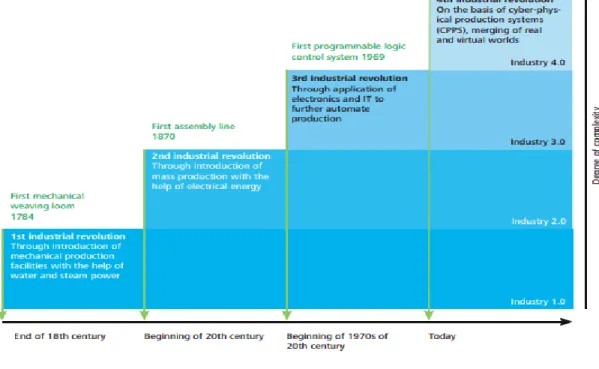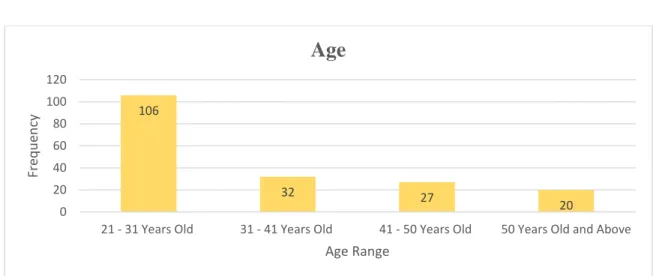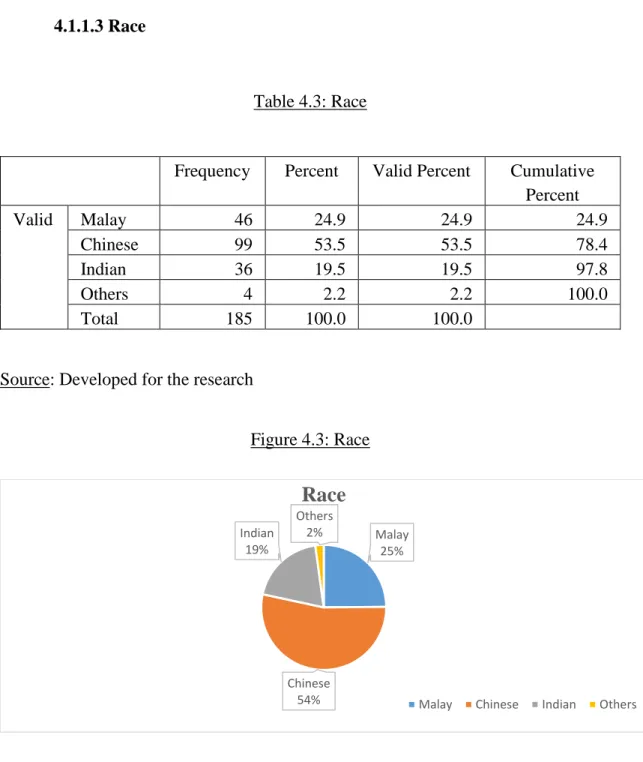In addition, we would also like to dedicate this research project to our supervisor Ms. Kalaivani A/P Jayaraman for her sincere and boundless support, help and motivation throughout the research. The title of this research project is "The influence of factors on the career development of service sector employees in the adaptation of Industry 4.0". The main purpose of this research study is to get an insight into an employee's perception, readiness and skills towards the aspect of career development in the workforce of the fourth industrial revolution.
RESEARCH OVERVIEW
- Research Background
- Problem Statement
- Research Objectives
- Justification of Research
- Significance of Study
- Hypothesis of Study
- Research Question
- Conclusion
The fear of employees in the service sector to be replaced thus already surfaced in the fourth industrial revolution. To investigate whether the employees are ready or well prepared for their career development in the fourth industrial revolution. This research provides important values for the employees who are looking for work for their future work in the fourth industrial revolution.
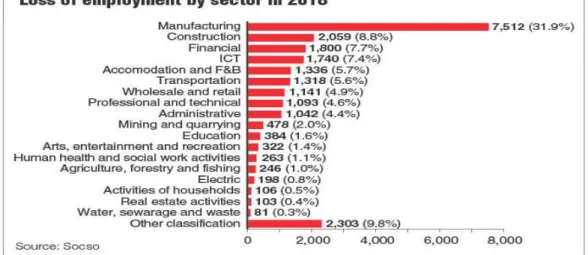
LITERATURE REVIEW
- Review of Literatures
- Cognitive Abilities
- Technological Skill …
- Interpersonal Adaptability
- Career Self-Efficacy
- Career Development
- Research Framework
- Hypotheses Development
- Theory Related in Supporting Hypothesis
- Conclusion
This results in the increasing importance of employees' cognitive abilities in terms of career development in the fourth industrial revolution. Therefore, the technological skills that employees in the service sector have will have a dramatic impact on their career development in the Industry 4.0 workplace (Employment and Skills Board, 2017). In conclusion, the workplace of the fourth industrial revolution highlighted the importance of career self-efficacy of service sector employees in the labor market, as it could help them perform career-related tasks in the dynamic workplace of Industry 4.0 in terms of career development.
METHODOLOGY
- Research Design
- Descriptive Research
- Quantitative Research
- Data Collection
- Primary Data
- Sampling Design
- Target Population
- Sampling Frame and Sampling Location
- Sampling Technique
- Sampling Size
- Research Instrument
- Questionnaire Design
- Constructs Measurement
- Measurement Scale
- Origin of Construct
- Data Processing
- Data Editing
- Data Coding
- Data Transcribing
- Data Cleaning
- Data Analysis
- Descriptive Analysis
- Scale Measurement
- Inferential Analysis
- Conclusion
Therefore, this research used a descriptive study to describe the demographics of service sector employees towards their career development in the Industry 4.0 workplace. Therefore, it is appropriate to test the hypothesis of this research in search of a better explanation for the emergence of the phenomenon. In this research, primary data will be conducted to get a clearer picture of the result.
In addition, this survey collected responses from employees working in various organizations in the service sector economy in the Klang Valley. In this research, service sector employees working in the Klang Valley are the target population of the researchers. The reason is that the unemployment rate has increased in this particular location and the national commercial control over the Klang Valley is expanding with the expansion of the service sector.
In this study, 200 service sector employees in Klang Valley will be selected to complete the questionnaire via the internet or physical interaction. In addition, the closed format of the Likert scale format is used in the questionnaire of this study. Apart from that, some respondents may not understand some questions, such as the questionnaire's independent variable interpersonal adaptability.
In this study, respondents were asked whether they think it is important to be flexible enough in dealing with others and the changing environment at work in Q1 of the questionnaire.
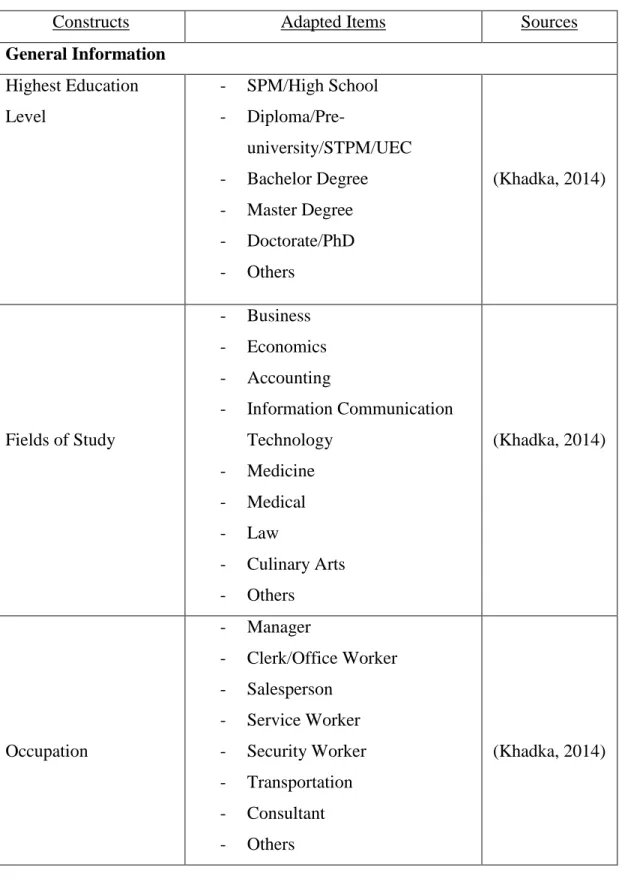
DATA ANALYSIS
- Descriptive Analysis
- Respondents Demographic Profile
- Years of Working Experience
- Central Tendencies Measurement of Constructs
- Scale Measurement …
- Reliability Analysis
- Inferential Analysis
- Multiple Regression Analysis
- Conclusion
General research question: Is the employee ready or well prepared in their career development in the fourth industrial revolution. As shown, the most important factors influencing career development in the workforce of the fourth industrial revolution are cognitive abilities. Research question 1: Do the cognitive abilities influence the career development of service sector employees in the 4th industrial revolution.
Research objective 1: To examine the cognitive abilities of employees in the service sector regarding their career development in adapting to the fourth industrial revolution. Research objective 2: To examine the technological skills of employees in the service sector from the perspective of their career development in adapting to the fourth industrial revolution. Research Question 3: Does interpersonal adaptability affect the career development of service sector employees in adapting to the fourth industrial revolution.
Research objective 3: To investigate the interpersonal adaptability of service sector workers in terms of their career progression in adapting to the fourth industrial revolution. Research Question 4: Does Career Self-Efficacy Affect the Career Development of Service Sector Employees in Adapting to the Fourth Industrial Revolution. Research objective 4: To investigate the career self-sufficiency of service sector workers in terms of their career progression in adapting to the fourth industrial revolution.
Factors influencing the career development of service economy employees in adapting to the fourth industrial revolution.

DISCUSSION, CONCLUSION AND IMPLICATION
Discussion and Findings
- Descriptive Analysis
- Multiple Regression Analysis
- Cognitive Abilities
- Technological Skill
- Interpersonal Adaptability
- Career Self-efficacy…
General research objective: To determine whether the employees of the service sector are ready or well prepared for their career development in the fourth industrial revolution. The higher the standardized beta coefficient, the greater the effect of four dimensions of career development on service sector workers when adjusting for the fourth industrial revolution in terms of career development. Therefore, it was supported by the findings that cognitive skills are one of the most important skills among workers in the fourth industrial revolution (World Economic Forum, 2016).
Therefore, there is a positive relationship between an individual's cognitive ability skills and career development among service workers in the adaptation of the fourth industrial revolution. Research question 2: Do technological skills influence the career development of service sector workers in the 4th industrial revolution. The research of this study aims to understand the variables that are cognitive skills, technological skills, interpersonal adaptability and career self-efficacy that influence the career development of service sector employees in the adaptation of the fourth industrial revolution.
In addition, this study had achieved specific research objectives, including the cognitive skills, technological skills, interpersonal adaptability, and career self-sufficiency of service sector workers in terms of career progression in adapting to the fourth industrial revolution. The findings have also contributed to the literature and provide a better understanding of the importance of the skills of service sector workers in adapting to the fourth industrial revolution so that they can improve their career progression. From here, service sector workers can become aware of and prepare for the necessary skills needed in the fourth industrial revolution workforce in terms of career progression.
Retrieved from http://www.bollettinoadapt.it/wp-content/uploads/2017/11/the-impact-of-the-fourth-industrial-revolution-on-the-jobs-market.pdf.
Implication of the Study
Limitation of Study
For example, there are insufficient sources of information and journal databases of the subject for researchers to refer to, as we are still in the earlier stage of the fourth industrial revolution. In order to obtain a more comprehensive view on factors (skills) that influence career development in the fourth industrial revolution workforce, future researchers are suggested to collect data from extensive sampling and distribution of questionnaires to different groups of employees from different age groups or countries to obtain a comparable result as the progress of technological development varies from country to country as well as the skills and abilities of each nation. Therefore, future researchers should consider putting more emphasis on other age groups ranging from 31 and older because of the skills and abilities that may differ from each age group in adapting for the fourth industrial revolution.
Last but not the least, it is recommended that the future researcher should apply longitudinal study on this research topic to raise awareness of the future generation workforce about the importance of skills and abilities from time to time in the labor market for them to advance their career improve development in the workplace which will improve economic growth of a country. Last but not least, the findings also provide the understanding of the changes, trends and increasing competitiveness of the labor market by the service industry employees towards the fourth industrial revolution workforce and therefore they can be ready and in terms of improving themselves in embracing the fourth industrial revolution. Are we ready?” As part of our thesis, the main aim of this thesis is to determine the outstanding skills of an employee among a group of qualified applicants working with the companies in the service sector economy and to identify the most important skills required and whether they is ready in the Fourth Industrial Revolution working industry.
I am able to regularly incorporate technology skills into my workplace when it is appropriate to adapt to the 4th industrial revolution. I possess technological skills that can help me choose an ideal way to assess the workplace of the 4th industrial revolution. Thus, it is conceptualized as a distinctive component of individual adaptability that is necessary in adapting to the workplace of the 4th industrial revolution.
It is also about self-assurance in the individual's ability to execute actions related to career development choices in the workplace of the 4th industrial revolution.
Recommendation for Future Research
Conclusion
Retrieved from https://www.researchgate.net/publication/309409129_An_Exploratory_Study_o n_Job_Hopping_in_Sri_Lanka_A_Study_on_Generation_'Y'_Employees. Retrieved from https://wol.iza.org/uploads/articles/344/pdfs/how-is-new-technology-changing-job-design.pdf. Retrieved from https://www.researchgate.net/publication/308871996_Work_readiness_career_s elf-efficacy_and_career_exploration_A_correlation_analysis.
Hentet fra https://repository.library.northeastern.edu/files/neu:cj82pq57h/fulltext.pdf?fbcli d=IwAR3W6vd3iHucUx6jSs0Ngvyr0NZGqH7y5sFLdw3k1VP3zjoAR COP7 Arbejdsgivere og kandidater Perception Survey on Employability and Graduateness: Produkter fra School of Construction Economics and Management ved University of the Witwatersrand. I Proceedings of the 1st UPI International Conference on Technical and Vocational Education and Training (s. 10-11).
Retrieved from https://www.telegraph.co.uk/news jobs-risk-automation-according- oxford-university-one/. Retrieved from https://www.ibo.org/globalassets/publications/ib-research/myp/myp-critical-thinking-report.pdf. Retrieved from https://www.weforum.org/agenda/2018/06/the-3-skill-sets-workers-need-to-develop-between-now-and-2030.
Survey Questionnaire
Cognitive skills are an individual's ability to conceptualize it as a basic skill for abstract reasoning, problem solving, or adaptability. I am able to solve critical problems by applying existing knowledge to generate new ideas, solutions, products or processes. Technology or digital literacy skills were defined as the ability to use digital technology, communication tools or networks to locate, evaluate, use and create information.
I have the computer literacy ability to use computer applications (eg, word processing, databases, and spreadsheets) appropriate to enhance technology in the workplace. My ability to meet technological needs will continue to improve if I am able to study at universities. It also includes the flexibility of the individual to act relatively dominant and friendly depending on the situation, to adapt to the new reporting structure in the team and to adapt the sales strategy to meet customer requirements.
I believe it is important to be flexible enough in dealing with others and changing the workplace environment. I tend to be able to read others and understand how they are feeling at any given moment. I will adapt his/her appropriate workplace behavior to get along with them.
I can stay calm when faced with problems at work because I can rely on my coping skills.
SPSS output: Respondent Demographic Profile
SPSS output: Descriptive Statistics
SPSS output: Reliability Test
SPSS output: Multiple Regression Analysis
